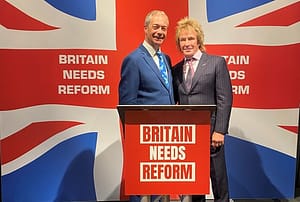While the City had the financial crash of 2008, politicians have had the MPs’ expenses scandal and the media, the phone tapping scandal. Each of these key pillars of UK life has had its own “trust crisis” in the past decade. Indeed most large institutions and areas of public life have suffered from this in recent years.
The loss of trust has been seen sharply in business, and especially financial services since the crash of 2008. Only 6% of 16-18 year-olds involved in recent discussions on morality in the 21st Century trust business to do the right thing – a steep decline from 60% just a generation ago. The reasons for this are manifold, including tax avoidance, mis-selling, treating staff badly, taking risks with the environment and in the City, a pay and bonus culture most working people cannot relate to.
Taking part this year in the previous Lord Mayor’s flagship programme, The Business of Trust, we reflected on this breakdown of trust. The programme has encouraged and inspired leaders from various sectors, both overseas and in the UK, to talk about trust more openly and honestly and the momentum generated by this will create a lasting legacy of better business, trusted by society. The Business of Trust was formally launched by the City of London Corporation and spearheaded by the previous Lord Mayor, Charles Bowman, in November 2017.
It’s a wide-ranging topic but for me the crucial points are as follows. First, technology is disrupting trust. It used to flow upwards to authorities, but now flows sideways to peers, colleagues and friends. This is what makes businesses such as Airbnb and Uber so potent. They rely on the wisdom of friends and family, people they know personally.
Second, business is not alone. Other institutions, not least politics and the media, are also grappling with the trust deficit. In her book “The Reputation Game”, Rachel Botsman distinguishes between two types of damage to reputation – one based on competence and the other on character. There are examples of business falling short in both areas , with the damage to character being more severe.
Finally, the key question is, what can be done by the business community to strengthen trust? Our discussions have shown there is no silver bullet. This is painstaking, slow work since trust builds glacially and is lost in an avalanche. Recent City of London Corporation research showed that of five key principles offered as the most important in building trust, integrity was the most popular, prioritised by almost half of respondents (46%). There is no substitute for personal honesty and integrity. We should bear in mind CS Lewis’ famous description that integrity is doing the right thing when no-one is watching.
The good news is that the younger generation of business people are sensitised to these issues. Purpose and the moral dimension are central to many in their world view. Many are eschewing traditional high-pressured jobs to do something that is cause-related.
Ten years on from the collapse of Lehman Brothers, we need to keep talking and thinking about trust. Like performance and purpose, trust is dependent on thoughtful, servant leaders. There will continue to be episodes of businesses and leaders falling short, but the current and future generation should remember that business is nothing without trust with employees, customers and partners.






Leave a Comment